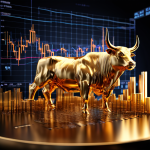
Jan 22, 2024
Understanding Collective Consciousness: The Invisible Force Shaping Societies
Digging deeper into Durkheim’s concept, he suggested that collective consciousness acts as the moral compass for societies, guiding behaviours and setting standards. Much like how individual consciousness influences our actions, it works on a broader scale, creating a sense of collective identity and belonging.
One might question how community awareness forms in a society. It’s a captivating process involving communication, interaction, and shared experiences. When we engage with others, we exchange ideas and absorb their perspectives, and, over time, these shared viewpoints form a collective whole. This is why societal norms and values may differ across cultures and regions.
Moreover, it isn’t stagnant. It evolves with society, reflecting the ever-changing social, political, and economic landscapes. As societies progress, their community awareness does as well. This dynamic nature allows societies to adapt, grow, and transform. For instance, the women’s suffrage movement in the early 20th century significantly altered the collective consciousness regarding women’s rights.
However, it’s crucial to note that collective consciousness doesn’t always signify progress. It can create societal pressure, pushing individuals to conform to norms even when contradicting personal beliefs. This tension between the individual and society is a subject of ongoing debate.
Collective consciousness is a complex, dynamic, and powerful force shaping society. Its understanding can offer profound insights into our social behaviours and societal trends, making it a captivating topic of study.
Navigating Our Shared Mental Space: The Tangible Influence of Collective Consciousness
The power of community awareness in navigating our social world cannot be overstated. As individuals, we constantly interact with this shared mental space, whether we’re deciding on what’s ethically correct, socially acceptable, or politically correct. This collective knowledge helps us connect with others, understand societal expectations, and make decisions that align with shared norms and values.
For instance, it can influence consumer behaviour. If society collectively believes that sustainable living is crucial, individuals are more likely to opt for eco-friendly products. Likewise, in the fashion world, what is deemed trendy or stylish often reflects our community’s awareness.
Moreover, understanding community awareness can help predict societal trends. By gauging shifts in our shared beliefs and attitudes, we can anticipate changes in various areas, from politics to pop culture. This is particularly useful for businesses, policymakers, and social researchers.
Beyond individual navigation and societal predictions, collective consciousness plays a pivotal role in addressing global issues. Take climate change, for example. It’s only when we collectively recognize its urgency that we hope to implement practical solutions. It fosters a sense of shared responsibility, encouraging collective action for the greater good.
Not to be dismissed as a philosophical concept, collective consciousness has its roots in empirical data. Various studies have substantiated the interplay between collective consciousness and individual behaviour. One such example is that individuals who identify with a social group are more likely to adopt its norms and values.
Further research in cognitive psychology and neurobiology has added more layers to our understanding of collective consciousness. For instance, the Mirror Neuron System (MNS), a neural mechanism found in primates, is believed to facilitate empathy and social understanding, contributing to the formation of community awareness.
Moreover, it isn’t confined to human societies. Even animals exhibit forms of it. A flock of birds moving in unison or a pack of wolves hunting together are examples of collective consciousness in the animal kingdom.
Far from being abstract, it is a tangible force that shapes our actions, decisions, and societal trends. Its understanding opens a world of insights, helping us navigate our social environment, anticipate changes, and work together towards common goals. As we continue to unravel this intriguing phenomenon, one thing is clear: our collective consciousness is a testament to our interconnectedness and shared human experience.
Evolution, Challenges, and Power of Collective Consciousness: Steering Societal Change in an Interconnected Age
Much like a living organism, community awareness possesses the capacity to change and evolve. Its dynamic nature reflects the shifting societal attitudes and beliefs. A profound example of this evolution can be observed in the transformation of societal attitudes towards LGBTQ+ rights. Over the past few decades, we’ve witnessed an unprecedented shift from marginalization to acceptance and recognition of the LGBTQ+ community. This change wasn’t spontaneous; it stemmed from collective learning and shared experiences.
Similarly, our collective consciousness regarding climate change has evolved significantly. Once a fringe concern, it’s now a central topic in public discourse, driving policy changes and influencing personal behaviours. This transformation highlights the power of collective consciousness to steer societies towards a more sustainable future.
The internet and social media have introduced a whole new dimension to community awareness. Today, we’re not just part of our local or national collective consciousness but also a global one. Digital platforms have enabled us to share ideas and experiences at unprecedented speed and scale, amplifying our collaborative learning. This international collective consciousness has the potential to foster worldwide cooperation and address shared challenges, such as pandemics and climate change.
Nevertheless, this digital interconnectedness isn’t without challenges. The spread of misinformation can distort our community awareness, leading to misinformed decisions and actions. Similarly, the rise of echo chambers, where individuals are exposed only to perspectives that align with their own, can polarize societies and stifle collective learning.
Examining it from a contrarian perspective, we see it can be a double-edged sword. While it promotes social harmony and cohesion, it can also fuel conformity and groupthink, as evidenced by the Asch conformity experiments. The pressure to align with group norms can suppress individuality and critical thinking, underscoring the need for a balanced approach to collective consciousness.
Recognizing the power and implications of collective consciousness is of paramount importance. It’s not just an academic curiosity but a vital tool for understanding and shaping our social world. We can build more inclusive and tolerant societies by harnessing this shared mental space, fostering a sense of belonging and unity in diversity.
Moreover, understanding collective consciousness can empower us to confront shared challenges more effectively. Whether combating climate change, addressing inequality, or promoting peace, our collective consciousness can catalyze positive change.
Ultimately, collective consciousness is a testament to our shared human experience. It underlines our interconnectedness and shared responsibility towards each other and our planet. As we navigate this interconnected age, let us use the power of our community awareness to build a better, more inclusive, and sustainable world. The journey may be challenging, but as the proverb goes, “If you want to go fast, go alone. If you want to go far, go together.” Let’s embrace our collective consciousness and go far together.












